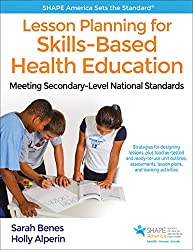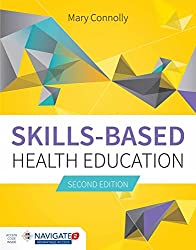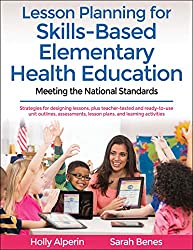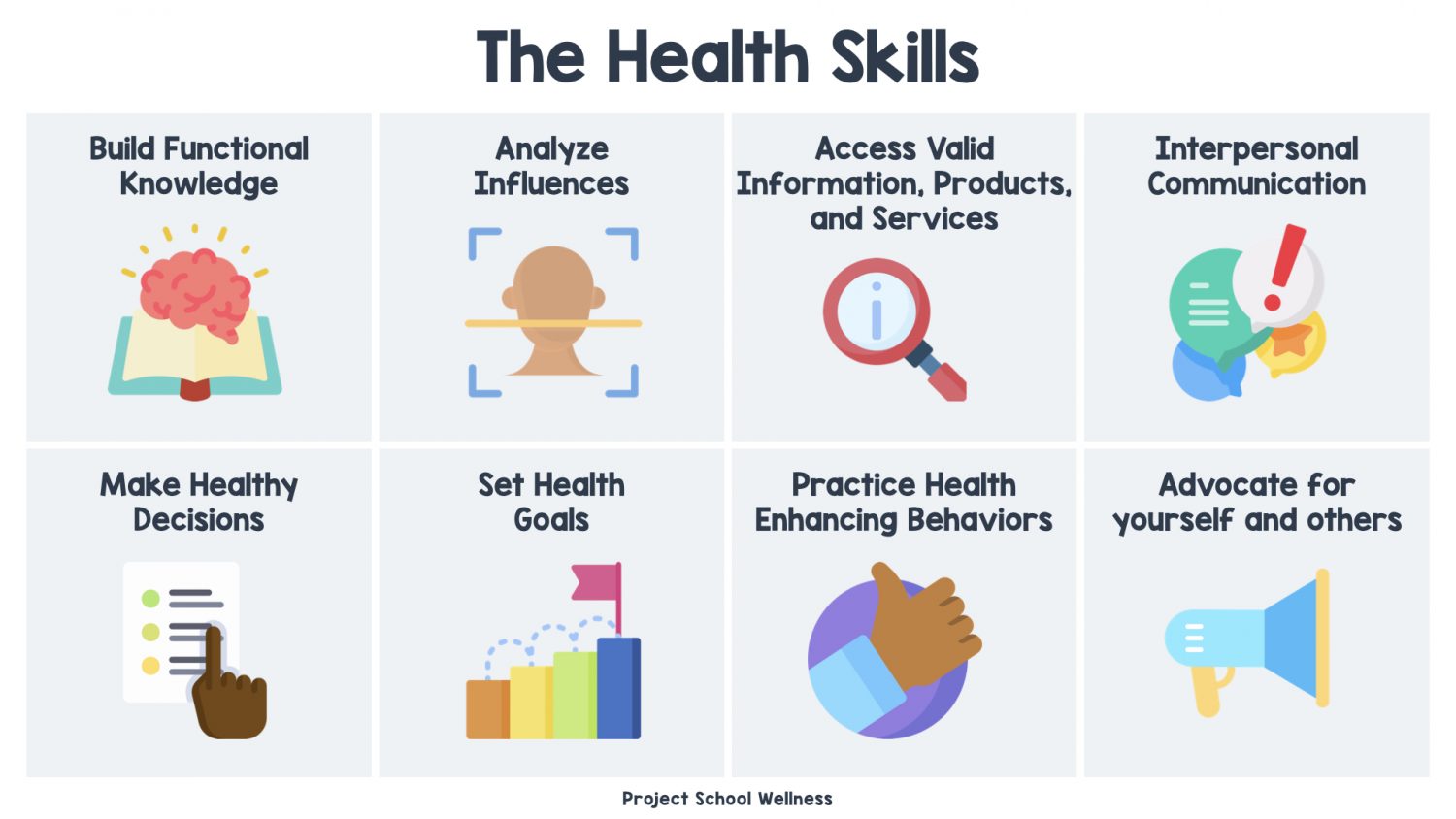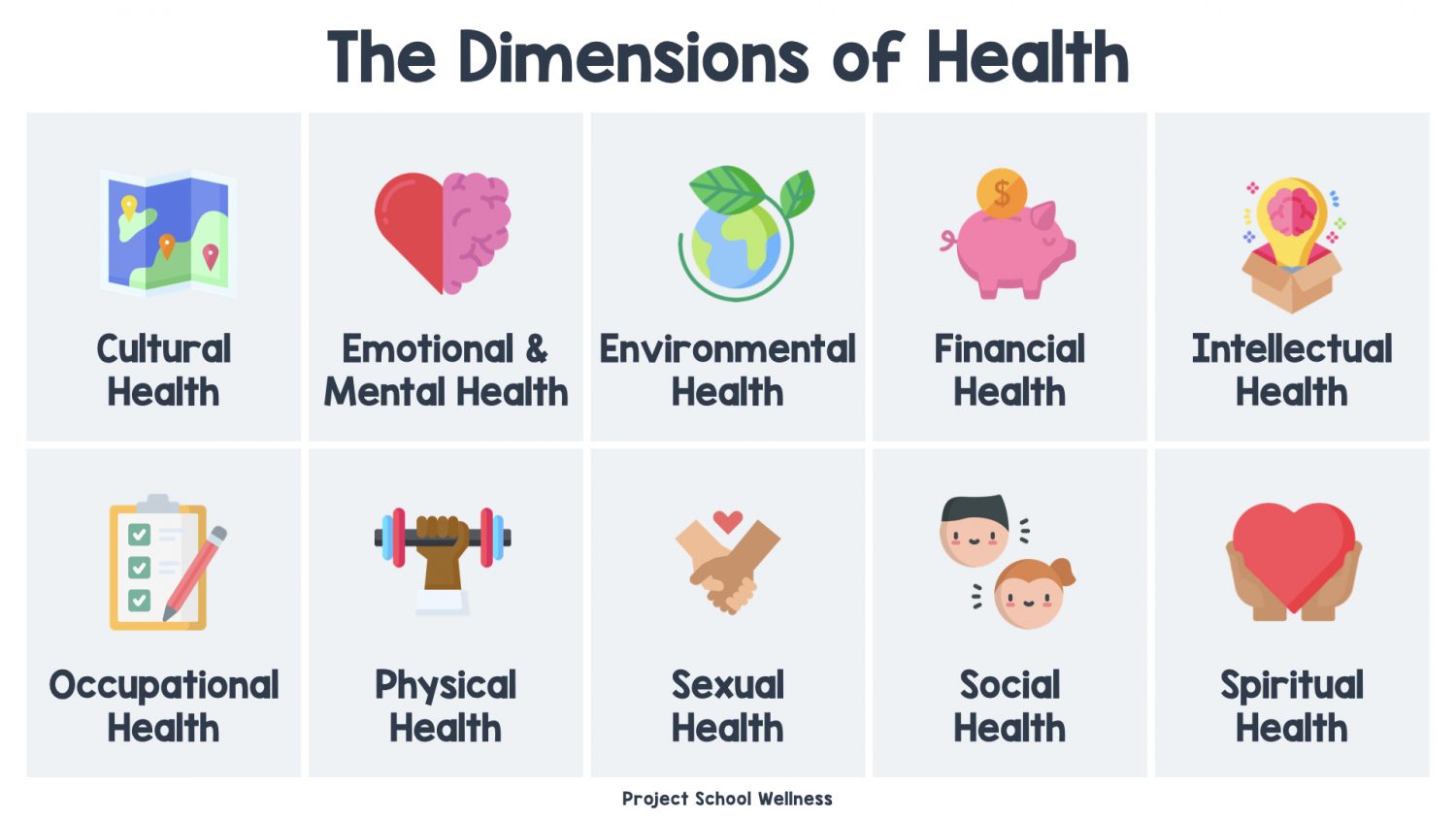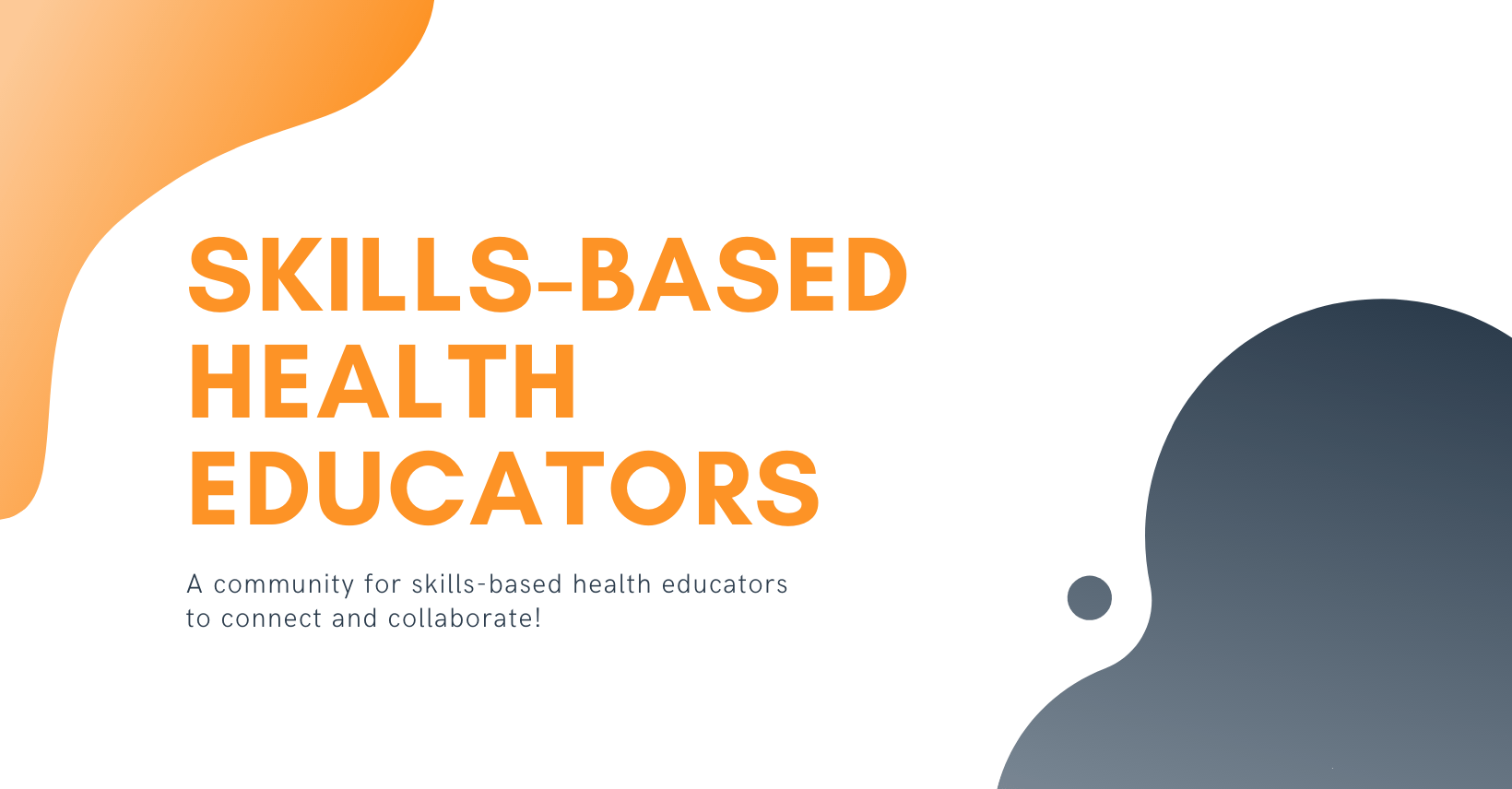Your Ultimate Health Ed Guide!
Table of Contents
- Introduction
- Task #1: Define Comprehensive Health
- Task #2: Understand What Skills-Based Health Education Is and How to Teach It
- Task #3: Examine the Health Skills & Dimensions of Health
- Task #4: Identify the needs of your students
- Task #5: Outline your scope and sequence
- Bonus Task: Build Your health teacher community
Introduction
Teaching health isn’t what it used to be. Gone are the days of only talking about eating healthy, working out, and memorizing parts of the body. Now the focus of health education is much more holistic and comprehensive, incorporating topics like mental health, building social skills, making healthy decisions, learning how to manage money, setting goals, and living with passion and purpose (and so much more). At its core, health education is all about teaching students the specific life skills they need to build happy and healthy lives.
While this is AMAZING for students, this new approach can offer a bit of a challenge for teachers, especially if your experience with health education has primarily featured a content-based model. If your teacher training programs did not present a guide for teaching with a comprehensive, skills-based health approach. Or, if you've never been officially trained to teach health education (hello, PE teachers turned Health educators).
If you’ve experienced any of the following and are looking for a comprehensive guide to teaching health, you’ve come to the right place! In this post, I’m sharing a five-step plan to help you become an amazing health educator!
Let’s dive in!
Task #1: Define Comprehensive Health
Let's start by taking a look at what comprehensive health is and why it matters. The essence of comprehensive health is an understanding that a person's total well-being is influenced by multiple dimensions (a.k.a. the dimensions of health). More officially, comprehensive health can be defined as the overall condition of a person (beyond being sick or not sick), referring to an individual's total well-being.
So why exactly does this matter? Well, for too long, conversations (and lessons) about health have been minimized to focus only on the physical body - be active, eat healthy, sleep well, etc. Now don't get me wrong, these habits are incredibly important and necessary, but these habits alone do not empower a person to thrive. I mean, if total health and happiness solely came from Physical Health, athletes and celebrities would be the happiest, most content people in the world. Right?
In truth, a person's well-being and ability to thrive relates to various dimensions of health and wellness. Each dimension of health playing a vital role and in need of intentional nurturing. Additionally, it is important to understand that the dimensions of health are interrelated, impacting, and influencing each other.
This means that when it comes to teaching students how to build sustainable health and happiness in their life, it's critical they understand that their well-being doesn't hinge on a single element (or even two or three). Instead, they need to realize that the core areas of their life each play a role in establishing well-being and need attention and care.
With this understanding of health, comprehensive health education can be defined as an educational approach focused on addressing the complex and interconnected elements of a person's life-impacting personal well-being. The goal is to teach students the necessary health skills and functional knowledge needed to actively and intentionally take ownership of all aspects of their well-being and nurture optimal health.
So how exactly do we empower students to take ownership of their lives and develop the necessary health skills and functional knowledge? The answer is skills-based health education!
Task #2: Understand What Skills-Based Health Education Is and How to Teach It
Alright, now that we have a better idea of what comprehensive health looks like, we're going to dive into the skills-based health education approach to health instruction. Skills-based health education is "A health education framework focused on mastering vital health skills and understanding essential health concepts."
Simply put, it's an approach to teaching health that prioritizes teaching relevant and practical health skills over memorizing and reciting content. It focuses on developing the essential skills needed to live healthy lives. To clarify, this doesn't mean that there is no content instruction. Instead, it means that the instruction only focuses on the essential information a student needs to know to execute a health skill (a.k.a. functional knowledge).
Now you may be wondering how exactly do you design skills-based lessons and teach with this approach? And that's a great question and one I can help you out with. I actually designed a free self-paced workshop to give you a little more insight into skills-based health and show you how to design skills-based lessons! (Pssst...not only is it free, but it also comes with free lesson plans, a lesson planning guide, and a scope and sequence template!).
Free Skills-Based Health Workshop
Along with our free workshop, I recommend checking out the following resources:
Task #3: Examine the Health Skills & Dimensions of Health
After having a better understanding of what skills-based health education is, it’s time to examine the health skills and the dimensions of health. Together they will guide your instruction and serve as the foundation of your health curriculum.
The National Health Education Standards have outlined key health skills individuals need to practice to build sustainable health. These skills empower an individual to take ownership of their well-being and relate to each of the dimensions of health. Here’s a quick overview of the health skills:
Along with the health skills, the dimensions of health will play a key role throughout your health instruction. Essentially, students need to learn how to use the health skills in relation to the various dimensions of health.
Feel free to review our pages (with definitions, videos, and resources) dedicated to the health skills and dimensions of health to learn more.
As you examine the health skills and the dimensions of health, it's important to recognize that when it comes to health, there isn't a one-size-fits-all solution. Each student and community face unique health challenges, requiring a customized blend of health skills and dimensions of health in their health education. This leads us to task #4, identifying the needs of your students.
Task #4: Identify the needs of your students
Now that you are a skills-based health expert (if you haven't checked out our free workshop, feel free to pause and sign up) and you understand the health skills and dimensions of health, it’s time to identify the specific health needs of your students.
As you explore, some needs are pretty general and relevant to all students, like building coping skills, nurturing healthy relationships, Sexual Health education, etc. However, your students will also be facing specific health needs connected to their life situations. This means your task is to put on your detective's hat and do a little research to figure out your students' health needs.
You probably already have a great idea of what health education your students need. But just in case you are looking for some more strategies, here are a few recommendations:
- Public Health surveys
- Need Assessment from your school counselor
- Insight from fellow teachers, admin, and community members
- Ask the students through anonymous surveys, journey entries, classroom discussions, etc.
I often find that the information gathered does a great job of identifying the dimensions of health lacking in students' lives. But it doesn't always specifically outline the health skills students need to master. If you're having the same issue, I recommend asking yourself, "What exactly do my students need to be able to do to strengthen their health need?"
Identifying the skill or skills students need to learn can be difficult. Especially since there are many health skills related to each health issue. Let’s look at an example.
Examples of Health Topics + Health Skills
Here’s the health issue: a public health survey shows a rise of STIs in your community's teenage and early adult population.
- What Dimension(s) of Health needs to be addressed? The primary dimensions of health are pretty straight forward: Sexual and Physical Health
- What Health Skills Need to Be Strengthened? Now, this is less straightforward because there are a few skills that may need to be addressed. Here are some possible options:
-
- Analyzing Influences - Examine how the influence of friends and media impact condom usage and a person's general understanding of STI knowledge.
-
- Accessing Valid Information, Services, and Products - Understand how STIs spread and where to find valid information; know where to access STIs testing and treatment; learn how to access the necessary products from a store or health care provider.
-
- Interpersonal Communication Skills - Be able to express personal boundaries in terms of protection against STIs.
-
- Decision Making - Build values-based decision-making skills to help make healthy choices relating to protecting against the spread of STIs.
-
- Practicing Health Enhancing Behaviors - Understand what behaviors help prevent the spread of STIs and how to actively practice said behaviors in real life.
-
- Self-Advocacy - Build self-advocacy skills to use in situations when STI contraction is possible.
As you can see, with each health topic, there are many health skills that need to be taught and developed. Unfortunately, this isn’t always enough time to focus on each one. So, you'll have to define the most critical health skills needed and focus on that one (or those few). I know we all wish we could teach all of the necessary skills but take heart knowing that even if you can't address everything, the more students learn how to practice each health skill in general (doesn’t matter what health topic it’s in relation to), the more they will nurture their overall ability to thrive and take ownership of their health.
Task #5: Outline your scope and sequence
Yay! You've made it to the final task, outlining your scope and sequence! That means it's time to take the information you've gathered from surveys, students, teachers, etc., and outline what your health program is going to look like. Since everyone's teaching schedule looks a bit different, I'm going to try and make this as simple as possible (which hopefully also makes it flexible and adaptable).
Your scope and sequence consist of three items for each unit: a health topic + health skill(s) + summative project. If you've finished the skills-based health workshop, this should all make sense. If you haven't, I recommend pausing here and going back to the workshop.
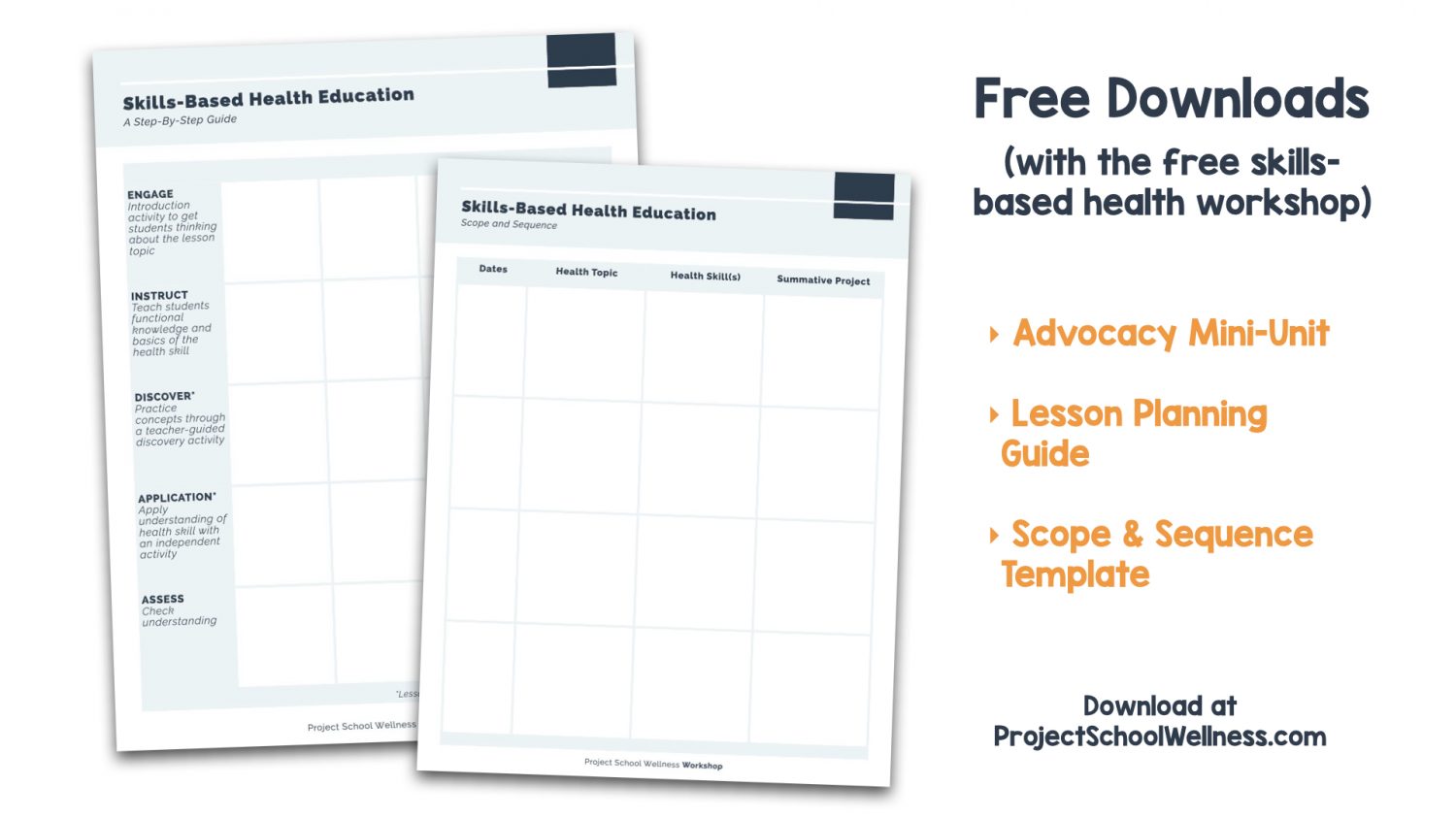
Because it’s a scope and sequence and not detailed lesson plans, as you plan, just share a general idea of each of the three components:
- The Health Topic - This is the health issues students are dealing with in their life and need help navigating.
- The Health Skill(s) - The primary health skill(s) students will learn how to practice in relation to the health topic.
- A Summative Health Project - This is the project students will complete showing that they understand the functional knowledge related to the health topic and that they can perform the health skill(s) in a real-life situation.
Once you’ve outlined your course, use the skills-based health roadmap and lesson planning template (from the skills-based health workshop) to plan your detailed lessons. And tah-dah, you’re ready to teach (and change lives!).
Free Skills-Based Health Workshop
Bonus Task: Build your health teacher community
Oh, before you go, I have a bonus task for you: get connected with other health teachers! We can’t do this on our own. Most of us health teachers don’t have co-teachers working in our building, so we have to get creative with finding a PLC. Thankfully, there are some amazing health teachers out there, creating online learning communities. Here are a few that I recommend (click for the links):
- Skills-Based Health Educators - This is our FB group!
Free Skills-Based Health Workshop



